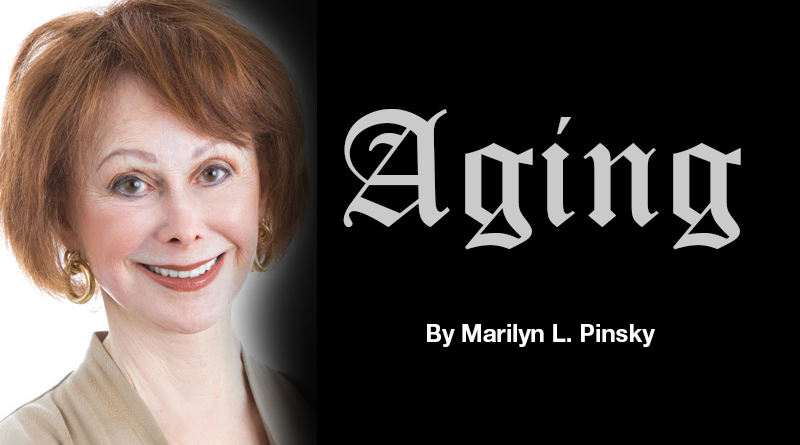Why Should We Care About Climate Change?
You can play a big part to fight climate change
By Marilyn L. Pinsky
Do you know the expression, “the teachable moment?” When something that didn’t make sense before, suddenly seems clear as day?
In just the last year, the Texas snowstorm, the wildfires out west, the increase in floods, have all been teachable moments for many of us about the effects of climate change.
My recent college graduate granddaughter, Sophie Craig, and I were both feeling badly that we hadn’t taken climate change seriously before this year. She wondered “how could I have gone through four years of college and never given thought to the most serious thing that will impact my generation?”
Sophie’s eyes were opened by new friends who had studied the subject and showed her facts that convinced her of the need to take action.
Mine were opened by a book I read, “Ministry of the Future,” which scared the daylights out of me. I felt that I needed to share my late to the table panic, and asked Sophie what she thought I could write that would get across the sense of urgency that she and I were both feeling?
“I’d say you definitely need to talk about what the world is going to look like if we don’t change our ways. Also, that we are doing this for future generations that haven’t even been thought about yet. For myself,” said Sophie. “I would like my grandchildren to live in a world similar to mine. Maybe not all the war, negativity or mental health issues, but definitely a world where we don’t have to wear gas masks and can drink the tap water.”
What follows is my attempt to do that.
For more than 17 years, I have been receiving information from Dr. Rhea Jezer about a conference she organizes, the “Symposium on Energy in the 21st. Century.” A faculty member at SUNY College of Environmental Science and Forestry, she is known for being a leader in the state on climate change advocacy.
I asked her how to explain an extremely complex problem and make it understandable enough to get people like me to take action.
“We all live in a bubble,” explained Jezer. “Because of the way our earth is formed, there is an impenetrable layer around us; when we put pollution into the atmosphere, it doesn’t go away. Ultimately, the same air that Moses breathed is the same air that we are breathing. The layer gets thicker and the rays of sun that could penetrate in, can’t be released because the bubble is getting thicker. It is very important to know that when there are major fires anywhere on the planet, like in Australia or Brazil, we are affected locally. It all depends which way the wind is blowing and that is something we can’t control.”
In my recent reading about climate change, it sounds like it is already too late to avoid disaster. “I don’t like to look at it that way,” replied Jezer. “Remember the acid rain that killed all the fish in the Adirondacks? That problem was solved through political action. By changing the level of smokestacks from coal-burning manufacturing plants hundreds of miles away in the Midwest, their polluting emissions no longer fell into the Adirondacks. And locally, look at Onondaga Lake. We didn’t think it was possible to clean up generations of pollution, but through political advocacy, action was taken and soon people will be swimming and fishing in it again.”
There are many issues that are being addressed to counter climate change, such as solar, wind energy and geothermal. One major issue being worked on in the legislature today is the transportation sector. Thirty six percent of New York State’s emissions into the bubble is from transportation and that is because we are using dirty fuels in our buses and trucks. New York State has set a goal to get to zero emissions and is working towards a plan to get there. As old, dirty-fuel buses get retired, and new buses are purchased, there are bills in the legislature requiring that all public transportation, including school buses, change over to electric.
For years our government has been subsidizing gas companies but unlike other countries, we have put very little toward renewable energies. Coming up in future legislative sessions will be bills that require the purchase of clean transportation vehicles, including the thousands of school buses that are purchased annually and in those bills will be funding to incentivize school districts to be able to afford to make that change.
And here is where we can make a difference as ordinary citizens.
“If we all work together to make sure our elected representatives know how we feel about climate change, about clean energy, we can have a huge impact,” Jezer said. “In addition to writing, emailing and/or calling state and federal representatives, we can also encourage our local municipalities to convert their fleets to electric. If our elected officials start getting a lot of correspondence that lets them know their constituents are concerned about climate change, and in this case, specifically converting their fleets to electric when replacing older vehicles, it gets their attention. A most important way to minimize climate change is for legislators to actively support the change to renewable energy.”
To find your state representatives online: https://nyassembly.gov/mem/ and www.nysenate.gov/contact
Locally, put your town village name and state into your browser and information will come up to reach the supervisor or mayor by mail or email. Either is good to do. From the comfort of our armchairs, we can change the world for the better.

